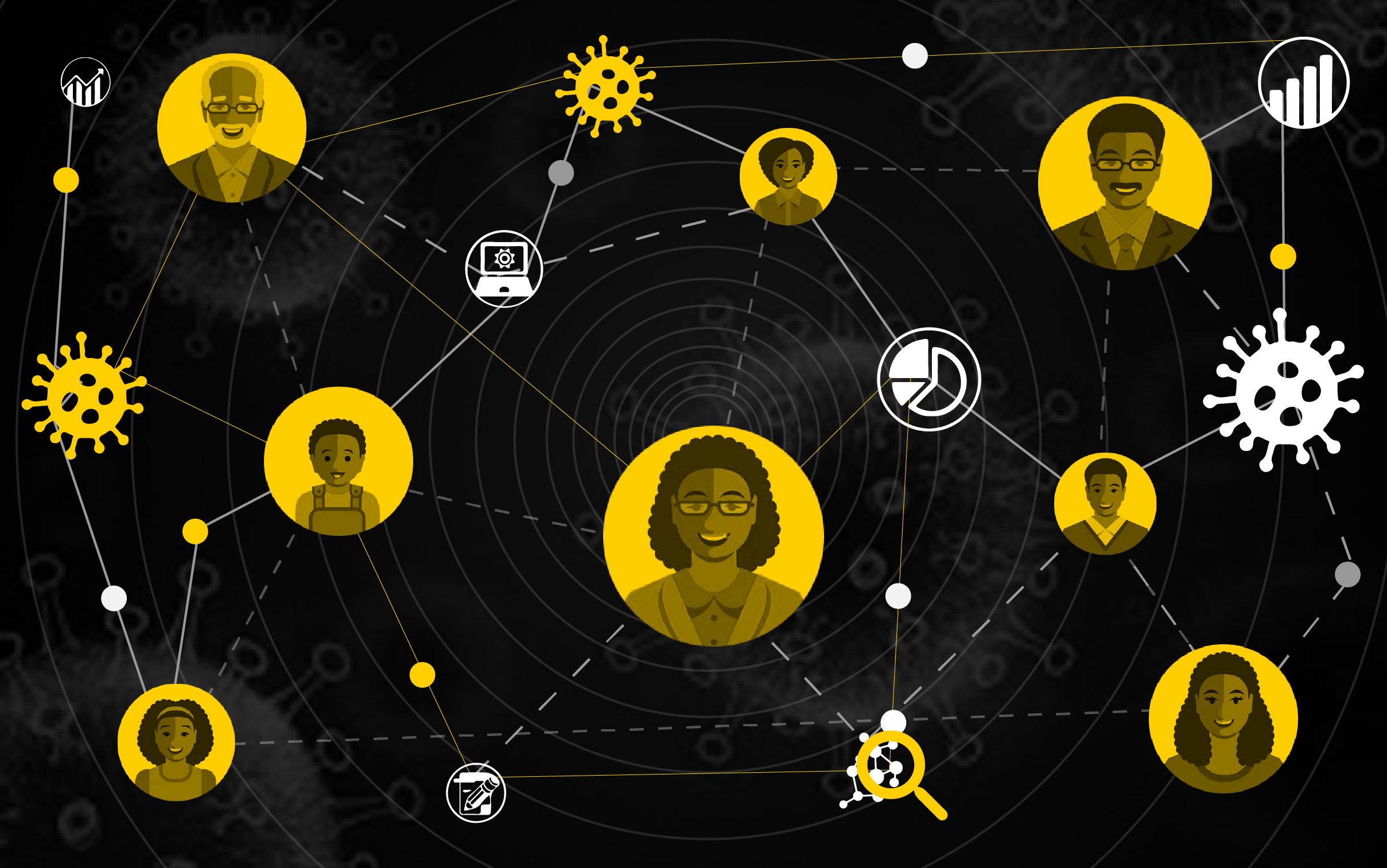June 17, 2020
COVID-19 Impact in the Black Community the Focus of BSU & UDC Research
Drs. Sharad Sharma & Timothy Oladunni Combine Artificial Intelligence with Data Science

MEDIA CONTACTS:
Damita Chambers (BSU), dchambers@bowiestate.edu, 301-832-2628 mobile
John Gordon Jr. (UDC), john.gordon@udc.edu, 202-701-8805 mobile
(BOWIE, Md.) – Computer science professors from Bowie State University (BSU) and the University of the District of Columbia (UDC) are using data science and artificial intelligence to understand why the nation’s Black community is experiencing higher COVID-19 deaths than other groups, as well as to develop tools to predict the scope of impact for discharged patients.
With a $100,000, one-year grant from the National Science Foundation’s RAPID Collaborative Research Program, BSU’s Dr. Sharad Sharma and UDC’s Dr. Timothy Oladunni hope their analysis will help decision-makers mitigate the spread of COVID-19 in the Black community. Their work will include designing a model to determine vulnerability to COVID-19, developing machine learning tools to predict the harm caused to discharged COVID-19 patients and creating a 3D virtual reality environment to visualize and analyze patient datasets.
“Human-centric situational awareness and visualization are needed for analyzing big data in an efficient way,” said Dr. Sharma. “One of the challenges is to create an algorithm to analyze the given data, without the help of other data-analyzing tools.”
A foremost expert in virtual reality research, Dr. Sharma is a professor in the Department of Computer Science and director of the Virtual Reality Laboratory at BSU, Maryland first historically Black college or university (HBCU). Dr. Oladunni, a former doctoral student researcher of Dr. Sharma, is an assistant professor in the Department of Computer Science & Information Technology at UDC, also an HBCU.
The researchers believe that multiple factors are responsible for the disproportionate impact among African Americans, including pre-existing conditions, type of employment and access to healthcare. In fact, the Centers for Disease Control and Prevention (CDC) reports that the Black population accounts for 30 percent of COVID-19 cases in the United States, although the community represents only about 13 percent of the population. In New York City, an epicenter of the pandemic, the Black population makes up 28 percent of the COVID-19 deaths.
“The project combines artificial intelligence and data science for prediction and data visualization to provide an accurate, timely and scientific strategy in combatting and mitigating the spread of COVID-19 in the Black community,” said Dr. Sharma. “Ultimately, understanding how COVID-19 impacts the Black community will provide the criteria for mitigating the spread of future outbreaks.”
UDC’s Vice President for Research Victor McCrary acknowledges the national significance of detailing the racialized impacts of the coronavirus pandemic on African American communities.
“As the only public emerging research university in the nation’s capital, UDC embraces this important research collaboration as our country battles this pandemic,” said Dr. McCrary. “We greatly appreciate the support by the National Science Foundation of this research effort.”
Dr. McCrary, who also serves as vice chair of the National Science Board (NSB), hopes this research partnership can influence future response to disease outbreaks by providing scientific analysis to inform the appropriate allocation of resources and launch of new institutional policies to help close the health disparities gap among African Americans.
“This striking disparity in the Black community is obviously devastating and troubling. The disproportionate impact relates to systematic disparity,” said Dr. Sharma. “Knowing the reasons why could help in developing a better system altogether.”
###
About Bowie State University
Bowie State University (BSU) is an important higher education access portal for qualified persons from diverse academic and socioeconomic backgrounds, seeking a high-quality and affordable public comprehensive university. The university places special emphasis on the science, technology, cybersecurity, teacher education, business, and nursing disciplines within the context of a liberal arts education. For more information about BSU, visit www.bowiestate.edu.
